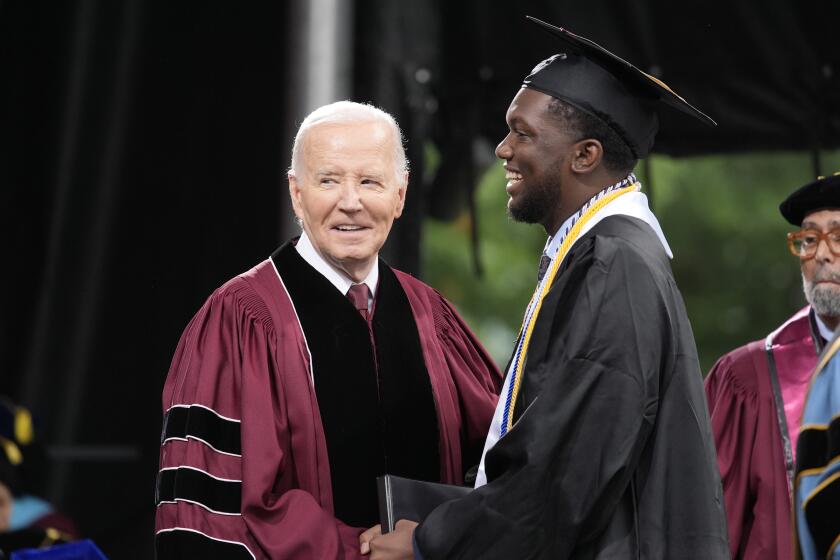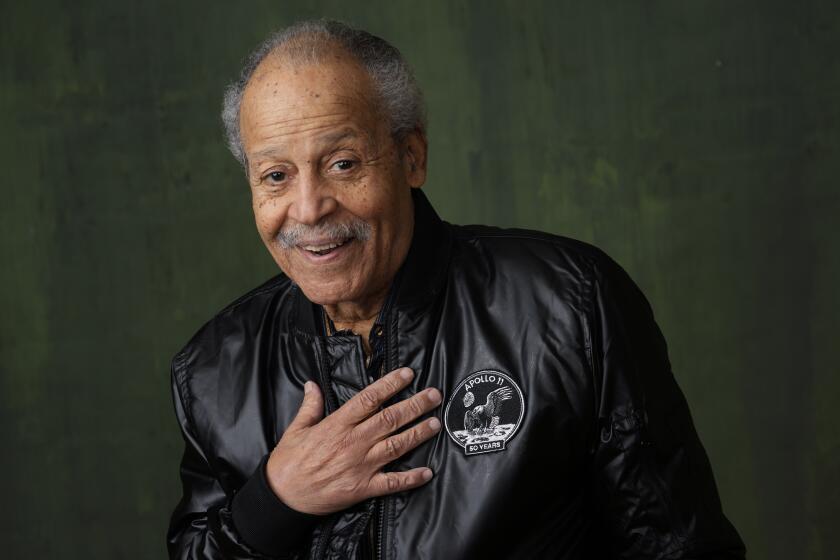Twist and Shout
Norman Podhoretz was in Boston, and he was shouting. Norman Podhoretz had come all the way from New York to Boston to attend a conference sponsored by Partisan Review magazine titled “Our Country, Our Culture,” and, upon arriving at his panel--the very first panel, “Intellectuals and Writers Then and Now”--Norman Podhoretz began shouting. Norman Podhoretz was shouting at a retired high school history teacher, who had risen from the audience to suggest to Mr. Podhoretz, with the forced assertiveness of shy people, that some aspects of American foreign policy had incited the attacks on Sept. 11. Norman Podhoretz responded by shouting, “You’re insidious! You’re insidious!”
Norman Podhoretz had come from New York, where he was born and has lived all his life, to Boston, and Norman Podhoretz was shouting, every bit as much as if he were back home in his kitchen in New York, and he was looking around for approval at the audience of about 30 people, some of them homeless people who were dozing in their seats, grateful for the panel’s two hours--10 a.m. to noon--of security and relative calm, except when Norman Podhoretz was shouting. Later, when Norman Podhoretz had stopped shouting, he made a joke, and nobody in the sleepy little audience laughed, and Norman Podhoretz raised his voice again, and said, to no one in particular: “I made a joke. Isn’t that funny?”
The conference, held some weeks ago at Boston University, was organized by Partisan Review, still going after nearly 70 years, on the anniversary of the magazine’s original 1952 symposium, “Our Country and Our Culture.” Fifty years ago this month, a significant debate over the relationship between American intellectuals and American culture was raging in the pages of Partisan Review, the legendary journal that the so-called New York Intellectuals had made their stamping ground.
Among the participants were William Barrett, Jacques Barzun, Lionel Trilling, Norman Mailer, Reinhold Niebuhr, Leslie Fiedler, David Riesman, C. Wright Mills, Sidney Hook, Irving Howe, Max Lerner, Arthur Schlesinger Jr. and the two editors of PR, William Phillips and Philip Rahv. Many of these distinguished minds had traveled from Stalin to Trotsky to democratic socialism, and they had cut their esthetic teeth on European high modernism. Now they stood poised on the edge of American liberalism. They were ready to embrace the capitalist system. They were prepared to submerge themselves in mass culture but not before issuing their own doubts and misgivings, sometimes with dramatic self-conscious gravitas.
The conference’s reach exceeded its grasp. Most of these stellar figures belonged to a tiny coterie that inhabited a tiny grid of tangled streets on the lower part of Manhattan. The “Our” in “Our Country and Our Culture” referred less to the teeming multitudes dwelling among the hills and valleys that rolled between sea and shining sea than to the 50 or so New York City blocks bounded by Katz’s Deli in the south and the New York Public Library in the north. Of the 24 discussants, only one was a woman, the poet Louise Bogan. There were no black writers or thinkers. And the issues the participants struggled so arduously with--e.g. should intellectuals accept popular culture? should intellectuals at least try to embrace mainstream social values?--might strike us today as perhaps trivial and absurd.
There was much brilliant and original writing, to be sure. But inanity flowed inevitably from the idea that a caucus could be assembled to dictate a collective transformation of attitudes. There was a diversity of response: Mailer and Howe affirmed perpetual adversarialism; Trilling defensively sniffed that intellectuals “can, I believe, be taught to think. They can even be taught to write”; Hook rabbinically reminded everybody that in America intellectuals are free to choose, whereas in the Soviet Union they are not free at all. But no contributor could escape this absurdity: The general proclamation of a new attitude toward American life recalled the mechanical proclamations of the Soviet commissariats.
And then there was the symposium’s context. These former political radicals had organized their public conversion at the height of McCarthy’s onslaught against political radicals. “Our Country and Our Culture” was as much a placation as an avowal.
The Boston University reprise replaced the “and” from the title of the original symposium with a comma, which meant either that the present organizers considered the country and the culture to be more closely allied than ever before, or further apart. Such ambiguity, incoherence even, presisted throughout the two-day event, which consisted of three other panels besides the first one about intellectuals. The most upbeat was “The Ascendancy of Science and Technology,” in which an inventor named Raymond Kurzweil demonstrated, with chart after chart displaying lightning-like lines soaring exuberantly upward, that advancing technologies were propelling humanity, well, upward. Surprisingly, many of the participants agreed that this presentation was the high point of the conference, though what Kurzweil’s final vision of the future--something to do with a laptop computer surgically fitted inside your head--had to do with the symposium’s subject was as obscure as its newly punctuated title. It was as if Marx’s idea of inevitable historical progress, which the first symposium had forsworn, had now been reaffirmed in the guise of a fancy commodity.
The subject--the state of the country, the state of the culture--was taken up at great length in the three other panels: “The Media and Our Country’s Agenda”; “What Happened to the Arts”; and “European/American Relations: Who Leads?” What was striking about the participants was that, almost without exception, they were from the far right of the ideological gamut. The original symposium embraced nearly the entire political spectrum: from Norman Mailer to the hard-line anti-communist Sidney Hook. At Boston University, one sat and listened to Podhoretz; Hilton Kramer; Cynthia Ozick (in absentia; her sour contribution was read with incongruous humanity and elegance by Joanna Rose); and from the National Review, the very British David Pryce-Jones. Hook’s name was in fact admiringly dropped throughout the two days. The collapse of communism seemed, peculiarly, to have hardened the opposition to communism, and to ever shade of liberal dissent.
Kramer told a long story, the gist of which was that the New York Times was a liberal paper when he worked there 40 years ago, was still a liberal paper and will always be a liberal paper. Polite applause. Ozick alternately condemned Americans for not reading anymore and condemned terrorists for terrorizing Americans. The octogenarian painter Jules Olitski stood up and mentioned the names of certain contemporary artists, pausing after each name so that the septuagenarian panelists could howl with laughter at the decline of aesthetic standards. Pryce-Jones had this thought: that anti-American Europe posed more of a threat to America than Iraq and that totalitarianism was on the rise from Paris to Berlin. This had the very visible effect of cheering the other participants by, one assumed, pushing the murky new political situation back into a familiar old framework.
Whereas the original symposiasts had struggled with the question of alienation from mainstream culture--and with the question of how much adversarialism an artist or intellectual could bear--their comfortable descendants luxuriated in the same questions. The anomie that had once haunted the American intellectual, and destroyed some writers and some artists, had now become an effective style of self-presentation. The current panelists might have deplored the way American popular culture had smoothly assimilated once-subversive values, but they were beneficiaries of the same conversion. The important thing was simply to keep shouting.
More to Read
Start your day right
Sign up for Essential California for news, features and recommendations from the L.A. Times and beyond in your inbox six days a week.
You may occasionally receive promotional content from the Los Angeles Times.






